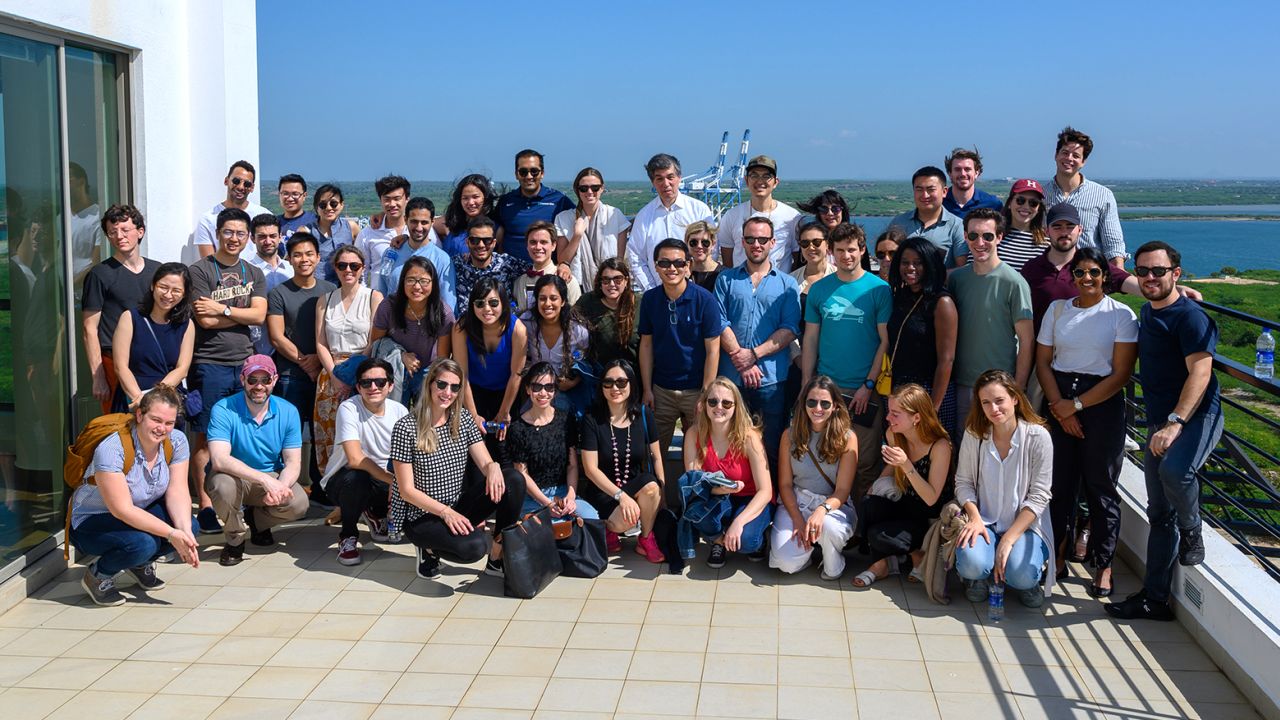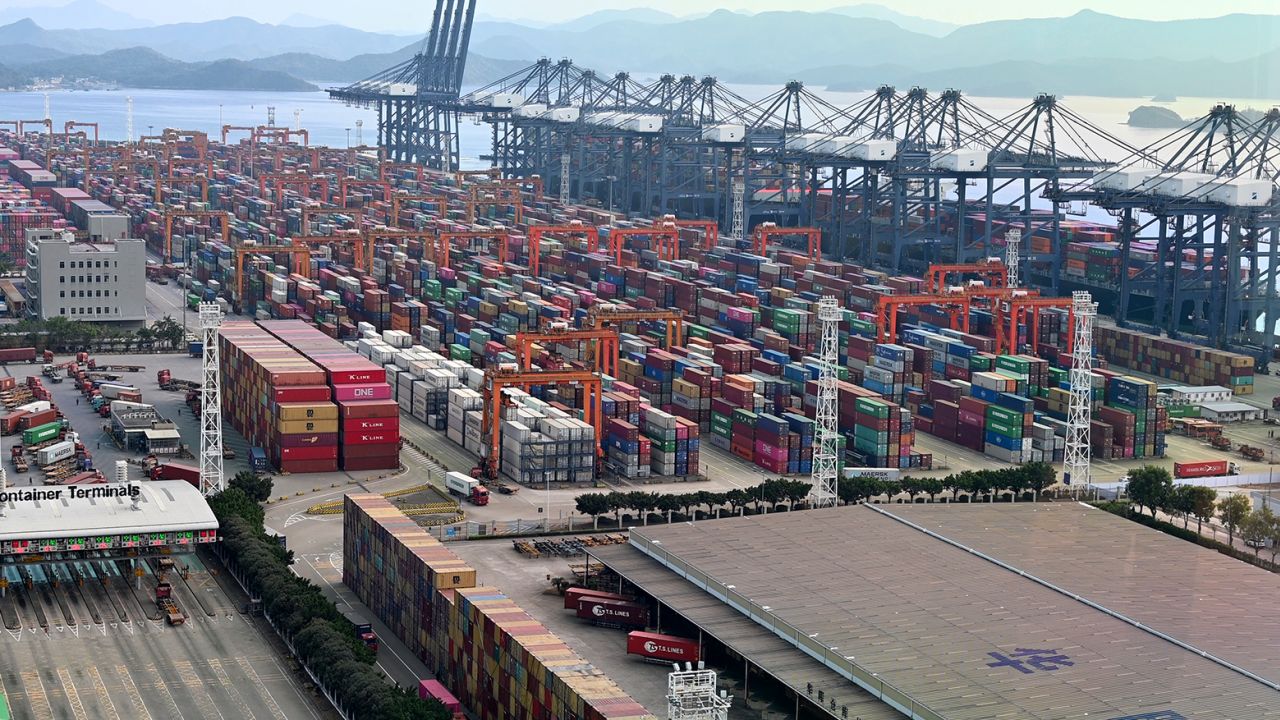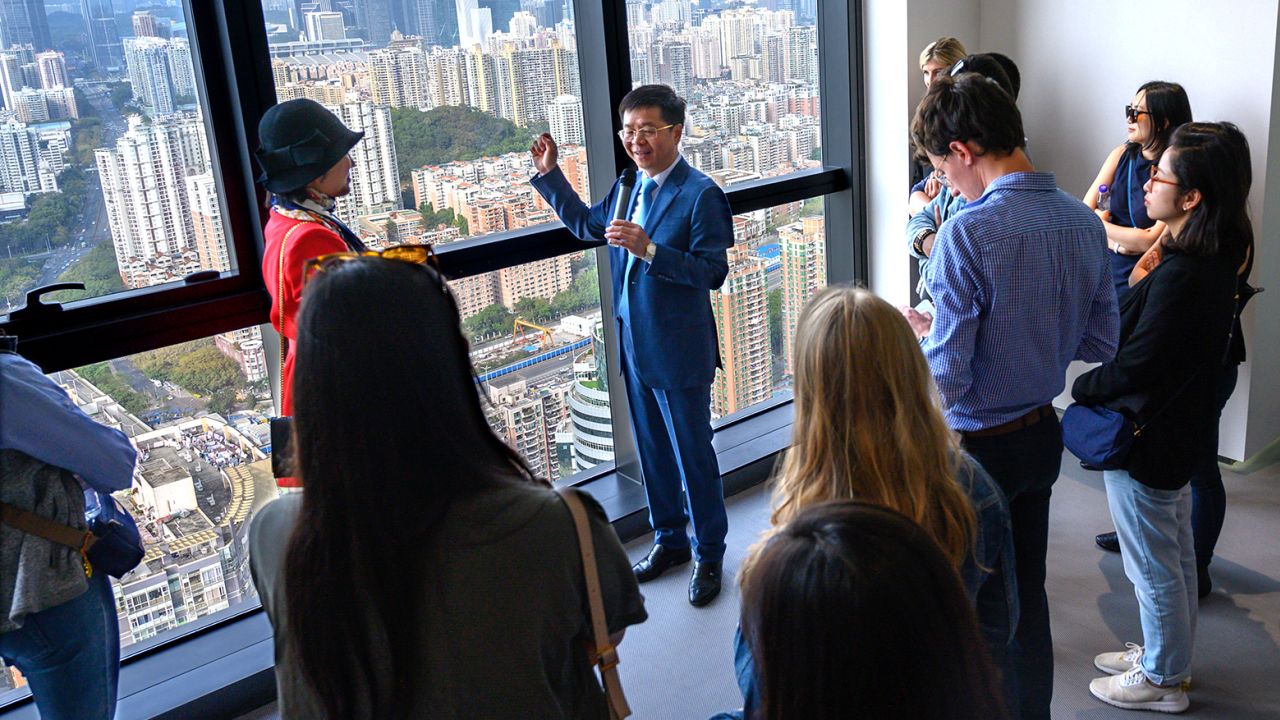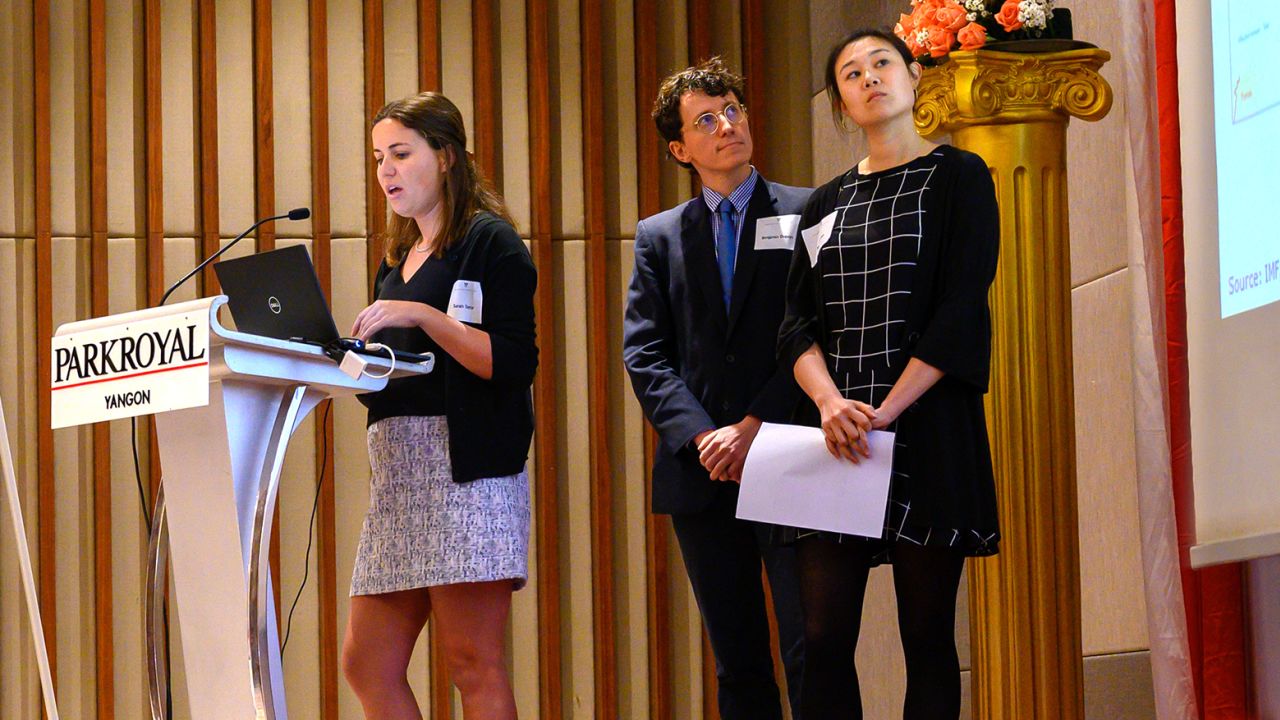South Asia
South Asia
“Hambantota was a reminder to think critically about the public narratives that are peddled by global stakeholders,” Pallavi Menon (MBA 2020) explains. “Our in-depth study unveiled surprising revelations about China’s involvement in the port that would have likely never surfaced without guidance from our professors and discovery on the ground.”
Led by Meg Rithmire, the F. Warren McFarlan Associate Professor of Business of Administration, and Willy Shih, the Robert and Jane Cizik Professor of Management Practice in Business Administration, the Immersive Field Course Asia: China’s Belt and Road Initiative also took students to sites in China and Myanmar, where staff members of the Asia-Pacific Research Center in Hong Kong provided extensive support.
The immersion complemented students’ classroom learning and offered hands-on insights—from both an operations and a political economy perspective—about the BRI. The connectivity project, which comprises the overland Silk Road Economic Belt and the Maritime Silk Road, involves a vast collection of development and investment projects stretching from East Asia to Europe. Students also learned about trade flows, global supply chains, and the mechanics of international commerce, including ocean container shipping and air cargo, as they relate to BRI development strategies.
“Hambantota was a reminder to think critically about the public narratives that are peddled by global stakeholders. Our in-depth study unveiled surprising revelations about China’s involvement in the port that would have likely never surfaced without guidance from our professors and discovery on the ground.”
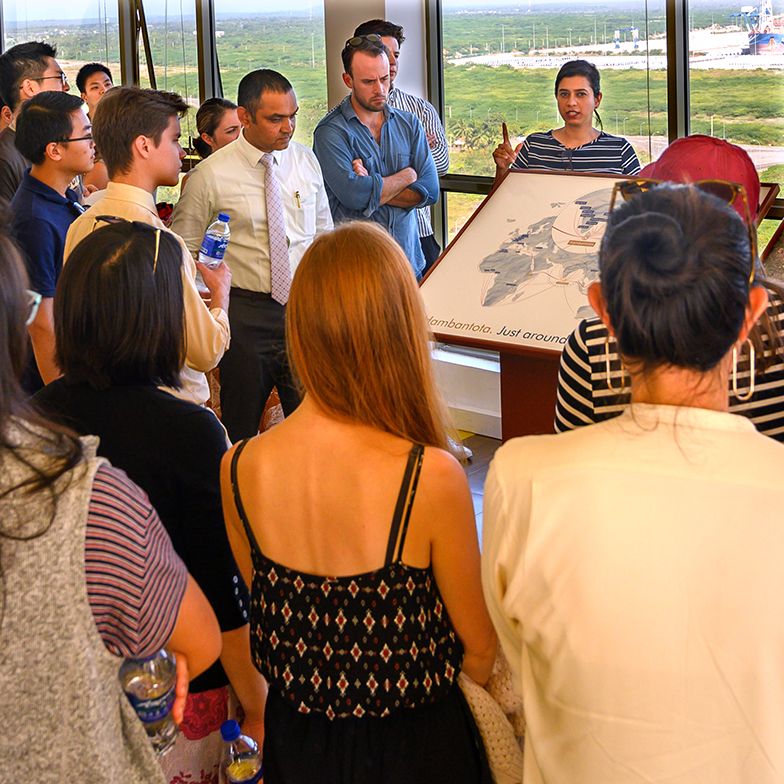
“Hambantota was a reminder to think critically about the public narratives that are peddled by global stakeholders. Our in-depth study unveiled surprising revelations about China’s involvement in the port that would have likely never surfaced without guidance from our professors and discovery on the ground.”
Involvement with the Belt and Road Initiative
The two-week immersion was packed with meetings, tours, and other activities for the students to get to know the issues and opportunities firsthand. The island nation of Sri Lanka, located just off the southeastern tip of India, was a highlight of the trip given the significant international attention it has attracted for its involvement with the BRI.
The group visited Sri Lanka’s Colombo Port, the busiest container port in South Asia, and discussed with officials there how the port was able to grow its capacity through land reclamation. They also learned about the trade agreements with India and China that made it possible for the port to attract transshipment traffic into and out of India to the rest of East Asia and beyond. The tour of the site included the future Colombo Port City, an urban development project slated for completion in 2041, which comprises office towers, luxury residences, an international school, and a convention center.
At Hambantota Port, located not far from one of the world’s busiest maritime shipping lanes, the students and faculty members heard about the potential for this new port and its environs to become an important hub of economic activity. They also discussed concerns that have been raised about whether there was a compelling need for a second transshipment hub on the island and if the influx of funding would make Sri Lanka dependent on China.
“Providing our faculty and students with opportunities to visit Sri Lanka and connect with local alumni and other business leaders on the ground deepens each person’s global perspective and understanding of the politics, economics, and social realities of geographies that are different from their own.”
HBS and Sri Lanka
The course, which HBS’s India Research Center (IRC) helped to organize, was the first student immersion to visit Sri Lanka. “Providing our faculty and students with opportunities to visit Sri Lanka and connect with local alumni and other business leaders on the ground deepens each person’s global perspective and understanding of the politics, economics, and social realities of geographies that are different from their own,” says Anjali Raina, executive director of the IRC. “By facilitating site visits and informational meetings, as well as offering their hospitality, our alumni helped make this first immersion in Sri Lanka a great success.”

